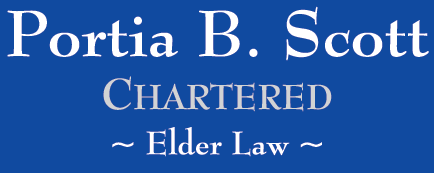Myths V. Facts

Of the many documents variations of which can be found on the internet, we have Powers of Attorney (“POAs”). As is the old saying, a little bit of knowledge can be dangerous.
With this writing, we are going to explore some of the most prevalent myths about POAs which are, at best, troublesome and, at worst, catastrophic to your plans.
Myth 1: A POA strips from the person who signed it (the Principal) all authority and vests that authority in the person who receives it (the Agent).
The nightmare I have seen are an Agent waiving the POA around, declaring “I am in charge now,” and “you have to do what I say” regardless of the wishes of the Principal. This is simply untrue.
A POA will allow another to perform your financial duties. Typically, a POA does not require you to be unable to make informed decisions in order for the POA to be used. The POA duplicates in another person the authority you have over your finances but does not strip from you any of your rights and powers. Now, if you are declared to be incapacitated by a Judge, that would strip you of your authority and the POA could be used to fill in the gaps in your financial care, but the execution by you of a POA does nothing to your own authority.
The POA will be effective even after a Judge, if there were an Incapacity matter filed, says you are incapable of making informed decisions regarding your own finances.
Myth 2: A POA is effective after your death.
It is not. Since a POA duplicates in another person whichever financial authority you chose to give the Agent, and, since when you are dead you cannot do anything, the POA’s usefulness is over. A dead person cannot write checks and neither can his/her Agent using a POA.
In fact, it would might be considered a fraud by the Agent to use the POA after the Principal’s death; it certainly would be void once discovered.
Myth 3: An Agent gets to make the decisions about how the Principal’s money is spent.
Though generally an Agent can spend the Principal’s money, the Agent may only spend the Principal’s money on the things the Principal wants. So, if the Principal wants to send her granddaughter a $100.00 birthday gift and asks the Agent to write her a birthday card with a check in it, that is fine. However, the Agent may not decide to write the check for $1,000.00 nor to include all of the grandchildren. Especially, the Agent may not write herself a check because, she needed the money. If the Agent were to borrow money from the Principal, the Agent should back that up with an I.O.U. (a promissory note) from the Agent to the Principal and keep a record of it.
Certainly, unless there are extraordinary circumstances, the Agent cannot change title to a car or house or boat from the Principal to the Agent or ever to the Agent and Principal together without breaching her fiduciary duty to the Principal.
Myth 4: The Agent can give away some of the duties granted under a POA to another person.
The State of Florida specifically prohibits the Agent from delegating the authority under a POA. If the Agent can not do the act authorized, only the Principal can.
These are just some of the common wrong-headed beliefs regarding Powers of Attorney. These POA can be very useful in many circumstance, but they do not grant “carte blanche” to the Agent.
Talk to an attorney about the bounds of a POA, especially if you have been appointed and do not understand the limits on your power thereunder.




